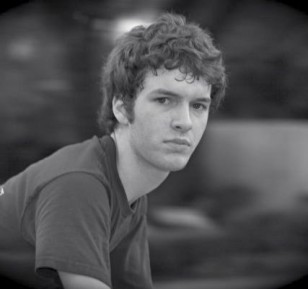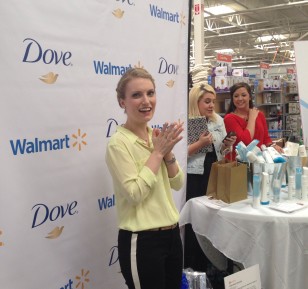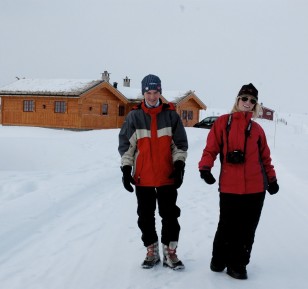I enjoyed this post from Kate Sitka so, so much. It’s all Erik. I know you’ll enjoy it, too! Thanks, Kate and everyone have a great weekend!
Buckle up people, it’s gonna get weird!
This entry is not so much *about* Erik as BECAUSE of Erik. Without Erik, his persistence, his poking to get us incarnated ones to make the right connections, this entry wouldn’t be happening.
A few weeks ago I had a wonderful session with a new client, a woman who found me through CE. She called me to connect with one of her departed loved ones, and our handsome Erik Medhus poked his head in on the session too. It was all pretty normal stuff until she mentioned her (living) son:
“I told my son that I have these sessions with mediums like yourself and Jamie. I was so surprised by what he said: he told me that he has become very spiritual himself! He started meditating, and he’s contacted aliens during his meditations! We had the best conversation!”
And suddenly, there they were – her son’s alien friends, making themselves available for conversation.
“Uh, I’ve got them. One in particular,” and so the conversation began. Basically, my client was more concerned that these beings were well-intentioned, and her son was in no danger. They certainly conducted themselves clearly, respectfully and kindly during our session, and I told her I wasn’t concerned.
“What are their names?”
“Well, I’ve mainly got the one. The other two are helping the transmission, but it’s really just the one who’s speaking. I’ll call him a “he” because that’s how his energy feels, but they aren’t a gendered people. His name, it’s like a bunch of piano notes all pressed at once. It’s like, PLINK! PLINK-PLUNK!”
A few days later I asked her for permission to write about this encounter, and she graciously granted it, but I didn’t know exactly how it was going to evolve.
This morning, Sweetie and I had a conversation with Julia Pastrana. That is a completely different blog entry, here’s a link to a recent article in case you’re interested.
The conversation with Mrs. Pastrana sparked a conversation between Sweetie & I of compassion, and how our human culture has changed (and not changed.) I said aloud that maybe it’s too much to ask of people who lived in a small town all their lives (and lives were shorter then) to be able to get over the shock of seeing anyone who looked SO different from anyone they’d ever seen.
Now, most of us internet-savvy city-slickers have seen, met, lived close to, dated, worked with and partied with a lot of people who look different than we do ourselves. In the days of Julia Pastrana, much of her audience would never have met an Asian person. Slavery and segregation was still wreaking havoc everywhere. How could they see the humanity in someone as different as Mrs. Pastrana, if they couldn’t see past their own shock?
Then I said, “Maybe that’s what it’s like with aliens? Maybe we just needed to get to a point where we could look at Mrs. Pastrana and see her as more than her body? Maybe we just needed to get to a point where we could think about talking to aliens, and not react in fear.”
And with that, Plink Plunk was back.
He communicates beautifully telepathically, and he speaks in comparative metaphors. He is well-versed in communicating with people by referencing our own knowledge of our species’ culture. This is a re-construction of our conversation:
Why do you watch and talk with people on my planet?
You are fascinating (the word “fascinating” is communicated with the feeling of intense interest and focus. Imagine that feeling every time you see this word.)
How long have you been watching us?
(Shows me a time of cities with streets that are filled with horses, rather than cars. I interpret this as 100 – 125 years. It could possibly be more.)
You have watched us constantly, for over a century?? (I give him a feeling of, “why” and “waste” with a question, to mean doesn’t he want to do anything else in his life? I can’t imagine working non-stop for over a century.)
You are fascinating – it is my strongest desire to continually observe (your species). Turning my observation to my own planet / species would be like (shows me watching a blade of grass grow.) Observing (your planet) is like watching (shows me a smoking volcano, gives me the anticipatory feeling – you don’t want to look away for one moment.)
(He also gives me the experience of existing in his body – he and his species live completely in “the now”. He lives moment to moment, and does not pass judgment on “what is he doing with his life”. He only knows in this moment, as in every moment in the past 100 or so years, he has desired to do nothing other than watch the action on our planet.)
In my first conversation with Plink Plunk, he had shared with us that he is located in a large indoor structure that looks like a big dome, with a hundred or so other of his people, and he compared it to a control room in NASA. This time he shows it to me again, but he shares that his food is pumped right to the desk, so he can absorb sustenance and maintain his body without diverting from his task.
He continues to share his fascination:
The variety of species (on your planet) is fascinating. (shows me millions of insects, invertebrates and microscopic life, then moving up to bird, mammal, reptile – the dazzling array of rapidly-evolving life on our earth.) The rapid rate of change in the species is fascinating. On my planet, we have a creature that is similar to (shows me a banana slug). This species lives in perfect balance with the plants my species uses for food.
In the gathering of food for our own sustenance, it is not necessary that the life of another species is ended. We do not kill the plants when we gather our food. The plant willingly excretes the liquid, and it is gathered. The (slug) travels through the plants to fertilize, to eat diseased or dying leaves, to maintain the health of the plants while it maintains its own health. We, the slug, the plants, we provide all that we need to each other.
There is not a single plant on your planet that can provide you with all your nutritional requirements. By your very bodies, you MUST end the life of many millions of plants to survive. You ALL kill and eat each other – it is fascinating.
I feel like I want to put exclamation points in some of Plink Plunk’s statements, but that would undermine the feeling of intellectual calm. He is like a human “nerd,” a specialized scientist who is intensely interested in everything that goes on over here. But he does not have that emotion that we attach to the word “nerd”. Enthusiasm isn’t a good word, because it adds emotion to what he’s saying.
He’s not enthusiastic or excited – he doesn’t experience adrenaline. He is like a Vulcan or maybe Data from Star Trek. He is intensely interested; anything he sees that might inspire a “Cool!” would instead provoke an intense focus and a feeling of profound fascination. But he would not gasp or exclaim, and he would not judge anything he observes.
(Shows me the paved roads, and the *knowing* that our species is addressing the transit issue in the most obscure way possible.) The paved roads are expensive. (defines expensive by showing me all of the different places on the planet the components of tar, concrete and pavement come from. All that energy to extract the resources, transport them, blast and level the road, pave it – expensive! And then, we create CARS! Again shows me the extreme effort we must go through as a collective to manufacture individual cars, and the year’s worth of labour each car-owning person in North America seems to work to pay for their car.)
At this point I am quite surprised to learn how well-versed Plink Plunk is in our economic system. Truly it is the scenic route when addressing the transportation issues of “the collective”.
Plink Plunk explains how his planet has resolved the same issues:
(Shows me Vancouver – the density of population and the tiny dwellings.) Observe all of the surrounding land. (Shows me a structure that looks like a bee-hive, six-sided pods stacked as high as they need to go.)
This is how we work. (Shows me the bee-hive structure, and the rooms are separated by a type of glass that is totally sound-proof, so that one’s thoughts are undisturbed by the motions of your colleagues, however you can still all see each other, and it’s easy enough to make eye contact and establish telepathic communication. Air exchange, temperature control and the “intelligent” glass all adjust to keep the natural and artificial light, humidity, breathable gas content etc., perfectly comfortable.)
At this point, Sweetie announced, “I have to pee.” Before she got up, Plink Plunk had offered that his body eliminates toxins as gas into the air, through his skin. This is why the constant air exchange within indoor environments is so important.
While we are outside, the plants surrounding us instantly take up our emissions. However, (inside) the air-exchange must be facilitated to maintain hygienic conditions.
Sweetie and I look at each other and think, “HE’s FARTING THROUGH HIS SKIN! I wonder if it smells?”
Between the nectar food getting sent to him through a straw at his desk and exuding his body waste in the air, Plink Plunk can sit at his desk for as long as he pleases. He does not seem to do any sort of body-conditioning, and doesn’t suffer any ill-effects of staying put. I want to tell myself that I must be mistaken; surely he isn’t sitting at that desk, never stretching or even sleeping for decades?
But he has not given me any indication that he has done anything other than watch us for quite some time.
I ask, How long does your species live?
Our bodies do not experience a limited life span, in the way of all life on your planet. Our food provides perfect nourishment for our bodies. Our bodies are perfectly suited to all activities we perform. We do not wear down, we do not grow old, we do not become limited over time. When we choose to leave behind our body, it is because we wish to do something else. Our bodies are not as dense as your own, and will deteriorate completely within hours of our “death”. Our bodies quickly break down into gas and liquid elements.
Now it is my turn to be fascinated. Sweetie asks, What is it like to watch humans?
It is like watching a fire that is afraid to burn out. (Shows me a campfire.) It is like watching this fire, and the fire understands it needs wood to continue to burn. All the while, the fire burns, it is afraid it will reach the end of its wood supply, and it will cease to exist as flame. Watching your species is like watching a fire burn – it is constantly transforming and breaking down all of the elements it consumes. It is a necessary part of the natural balance on your planet; the fire will leave behind fertile ashes, and new life will take hold, seeded from surrounding plants. The fire does not see this, the fire only knows it must burn, and it will one day burn out. Yet it worries. Have you ever observed your fire, and imagined it knew it would extinguish itself?
No, we had not. Fascinating.
Sweetie asked, What do you think we should do to solve the transportation issue?
Our planet, our transport system is so beautiful (feeling of pride and enjoyment.) The collective has pooled the available resources, and distributed them to best-serve all of our species who wish to transport our bodies around our planet. (shows me how it works, I will explain it as though he uses words-)
As seen from high above, there is a network of rail. The rails are very thin and strong, and they curve high above the forest canopy. There are no paved roads, only paths and lovely walk-ways. Isn’t it beautiful? (His species takes great enjoyment in atheistic appreciation of natural forms and in well-designed solutions that disappear into the background of the natural environment.)
You approach a panel next to the rail. You press a call button. Within minutes, a travel pod will arrive. It is round, and seats either two or four. You enter your destination, then sit back and enjoy the ride.
The pod routes are beautiful. He shows me what a pod system could look like on Vancouver Island, how beautiful the ride up the mountainside – like a gondola. We already have a network of power lines – why not upgrade them to electrified rail? How magical to ride on a high-speed rail across Barkley Sound, and then underwater to Victoria. It would be possible to live in Tofino and work in Victoria or Vancouver; the travel pods are so efficient.
He then contrasts this to the paved roads – how ugly and inefficient and slow this system is to him.
I ask him how this system is constructed. Sweetie comments that it would be tough to get a bunch of our people to agree on implementing such a system nationally. Plink Plunk then shares exactly how this collective planning happens:
There are individuals who gather the thoughts of travelers. This information is analyzed and cued into the ongoing plans for improvement and evolution of the system.
So if I were travelling in a pod system, and I had to transfer twice to get to Vancouver, I might think, “Gee, we need an express to Vancouver.” I might even say that with mild annoyance.
This thought and every thought about the system would get picked up by the developers, and changes would be implemented. Perhaps the next time we went to Vancouver, we wouldn’t need to transfer, and that would be pleasing.
We talked about the history of humanity, and contrasted our cultures.
On your planet, one individual (shows me one person taking the rudder of a boat, and turning the direction of the boat completely around, taking with him hundreds of other people aboard.) There are not leaders in this way on my planet.
(Gives me the visual of how governing / resource sharing decisions are made: which way is most efficient, and best meets the free-will needs of all people? Shows me that each need is like a stone in a waterway, and the solution will naturally be formed by the needs, like water flowing through the stonework.)
However, it is not possible for one individual to be the rudder for many. Change/Evolution occurs gradually and steadily, not rapidly as a boat is directed by a rudder. That does not exist here. There is no Cesar controlling armies to conquer all the planet. There is also no heroic action – there is no need for it.
At this point, Sweetie comments that perhaps, some of us might find such a perfectly balanced existence boring. We do experience such constant, rapid change here.
There are some planets that exist (shows me they are very dark, the emotions are all sadness, depression, heaviness. It is incredibly dense.) There is no lightness, no (laughter, joy, high vibration) to contrast with the darkness, and so there is no suffering. It is a perfectly balanced homeostasis.
Your planet shows much contrast – much heaviness contrasting with much light. This is what is creating the change. This is why the species evolve so rapidly, and this is why there is such variety of life upon your planet. It is the presence of opposing elements, causing (shows me a pendulum of a grandfather clock, tick-tock, swinging back and forth. Every swing is a change, every change causes another change.)
I understood in this moment how it is we look like fire – our whole existence, really the planet’s whole existence has been defined by constant change. Ice ages. Global warming. Contrast. Transformation.
The brightness of the fire is expressing the all of the stored energy we are releasing – literally burning up. Burning all the fossil fuels – this is energy that has been locked up for literally millions of years. We’re releasing it.
Your planet is a very bright star in our sky. Some of the energy released travels to our planet as light, is absorbed by our food plants, and so is absorbed by me.
In this way, we are connected.
ENJOY PART THREE OF ERIK’S DESCRIPTION OF THE AFTERLIFE



